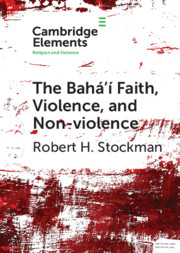Angelology is in a renaissance. Yet the angels of new religious movements in general, and the Bahá’í Faith in particular, remain less examined. In response, I offer a typology of Bahá’í angels as avatars of the Holy Spirit, distinct celestial beings, spiritually evolved people, manifestations of God, and carriers and personifications of divine virtue. These five types respectively function to emphasize the authority of divinity, accentuate the mystery of spiritual reality, reconcile spirituality and materialism through the duality of human nature, position prophets as “manifestations” of God in the context of “progressive revelation,” and attempt to make the unknowable God knowable through the transformation of axiology to ontology. Collectively, Bahá’í angels illumine an understanding of religion as a dialogic relationship. Religion is reconceived as an interactional balance of divine will and human agential choice.
